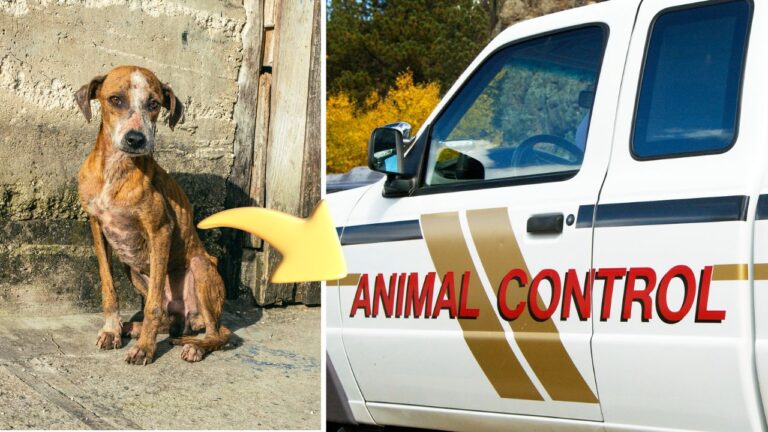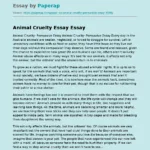In neighborhoods across the country, the call to animal control reverberates in moments of distress, concern, or indignation. Why do citizens take this step? What drives individuals to report their neighbors for potentially neglectful or abusive behavior toward animals? This article seeks to delve into the intricate narratives behind those calls—echoes of compassion, frustration, and a determination to uphold the well-being of vulnerable creatures.
Understanding the context is paramount. Animal control agencies are often the first recourse for citizens witnessing what they perceive as animal cruelty or neglect. Yet, the decision to intervene can be laden with emotion and personal conviction. It’s essential to explore the circumstances prompting these calls, which often emerge from a profound sense of responsibility toward our fellow beings.
### The Catalyst for Concern
Many tales begin with a chance encounter—a fleeting glimpse of an animal tethered under a relentless sun, or a sinister noise echoing from a nearby residence. For instance, a woman walking her dog may notice a neighbor’s boxer left outside for hours in oppressive heat, with no access to shade or water. Such sights evoke a visceral reaction, compelling her to take action. The sight of an animal suffering triggers an innate sense of justice that many cannot ignore.
In another scenario, an individual observes an unkempt yard littered with remnants of what appears to be an abandoned pet shelter. The situation stirs a cocktail of emotions: concern for the animals’ welfare, curiosity about the owner’s circumstances, and moral outrage. Ultimately, witnessing neglect often ignites a sense of urgency that propels citizens to contact animal control.
### The Emotional Toll on Witnesses
It is crucial to recognize the emotional toll that these observations can exact on witnesses. Those who choose to call animal control do not do so lightly. A burden weighs upon them— the worry that their silence might perpetuate suffering. A tale emerges from a concerned neighbor, who spent weeks agonizing over whether to report a dog left alone in a small, cage-like space. The sight of the animal pacing incessantly gnawed at her conscience. Each time she walked by, her resolve grew stronger, eventually leading her to make that difficult call.
Such decisions often turn into moments of moral reflection. Witnesses may grapple with questions such as: “Am I overreacting?” or “What if I misjudge the situation?” The anxiety of these decisions highlights the complexity of human-animal relationships and the societal obligation to intervene when something appears amiss.
### Varied Motivations for Reporting
Reasons for calling animal control are as diverse as the individuals making the calls. The motivations may range from a genuine desire to help animals in peril to a concern for the safety of the community at large. One poignant story entails a man, a life-long animal lover, who found an emaciated cat lurking in his backyard. Believing the cat to be feral, he initially hesitated, thinking it might be best to leave it alone. Yet, the stark image of its ribcage protruding through its fur called him to action. His call to animal control wasn’t solely motivated by empathy for the cat; he also feared the potential health risks associated with a feral population growing unchecked.
On the flip side, there are tales that reveal the darker side of human behavior. Individuals may call animal control out of spite, driven by personal grievances. A series of reports stemmed from ongoing disputes between neighbors, where tensions among them escalated to accusations of animal cruelty. This raises ethical questions about the validity of the motivations behind such reports: when does concern cross the line into petty retaliation?
### The Decision-Making Process
For many, calling animal control is a culmination of careful observation and consideration. This contemplative process often involves gathering information, including taking note of the animal’s condition, the environment, and, if possible, the owner’s behavior. A woman who witnessed a dog being beaten by its owner spent a torturous night ruminating over the incident. Fueled by the desire to protect and advocate for the creature, she meticulously documented the events before ultimately dialing animal control. Her actions exemplified the gravitas of witnessing cruelty and the ethical imperative to act.
### The Impact of the Call
The repercussions of these calls often extend far beyond the initial report. Interventions by animal control can lead to positive outcomes, such as rehabilitation for neglected animals and educational outreach to owners about proper care and responsibility. Yet, there are cases where reports may not yield the desired outcomes, leaving concerned citizens disillusioned. The emotional landscape can become tumultuous when a sense of helplessness prevails. One such case involved a woman who reported a puppy left tied up in freezing temperatures. When animal control arrived only to find minimal evidence of neglect, her heart sank. The visceral desire to help clashed with the harsh realities of enforcement limitations.
### Guiding the Narrative Forward
So, what emerges from these stories? The decision to call animal control is a multifaceted journey, a reflection of one’s values and willingness to champion the rights of animals. Each narrative underscores a crucial element: awareness. Enhanced awareness of animal welfare issues nurtures a culture where calling animal control is seen as a responsible, community-oriented choice rather than an act of unwarranted interference.
The experiences recounted by concerned citizens serve not only as cautionary tales but also as beacons of hope. They illustrate the profound impact that a single action can ignite—positively transforming the fate of an animal while reinforcing societal norms around care and compassion. In a world where the plight of animals often goes unnoticed, these stories remind us of our shared responsibility, encouraging a shift in perspective that recognizes the vital role we play in safeguarding the dignity of every living being.
As we foster dialogue around animal welfare, let us be inspired by the voices of those willing to act, and embrace the collective commitment to nurture a humane society where the well-being of all creatures is prioritized.










